Distinguished Nine
TUM School of Social Sciences and Technology Welcomes New Faculty, Elevating Excellence
The School of Social Sciences and Technology (SOT) at the Technical University of Munich (TUM) welcomes nine new professors as the 2023/24 academic year commences, bringing together a wealth of expertise and experience across a broad range of social science-based interdisciplinary research, teaching, and outreach activities.
“We’re thrilled to welcome nine outstanding colleagues from Europe and abroad to a vibrant community of researchers and educators from the fields of governance, educational science, and science & technology studies,” says Urs Gasser, Dean of the TUM School of Social Sciences and Technology. He adds: “Joining a stellar community of scholars, our new colleagues will strengthen our unique intellectual environment and help double down on our mission to study and shape some of the world’s biggest societal challenges and their interaction with technological and scientific transformations.”
The latest group of scholars joining SOT includes full professors, associate professors, and tenure track assistant professors, all contributing to a rapidly expanding community and collaborating across TUM Schools and beyond. Since its launch in October 2021, the TUM School of Social Sciences and Technology has seen 18 faculty recruits, bringing together a total of 48 professorships under its roof with additional faculty to be recruited over the coming months and years.
Jana Diesner
Human-Centered Computing (Full Professor)

Jana Diesner earned her Ph.D. from the School of Computer Science at Carnegie Mellon University. She will join from the University of Illinois at Urbana Champaign, School of Information Sciences, where she works as a tenured Associate Professor and leads the Social Computing lab. Her fields of research are computational social science and human-centered data science.
“In the work we will do at my lab at TUM, we will put humans right at the center of designing technologies, and we will emphasize the consideration of social and cultural contexts as well as ethical concerns for creating computational solutions to hard and complex societal problems,” Jana explains.
Jana advances methods and technologies from network analysis, natural language processing, machine learning, and AI, and integrates them with theories from the social sciences and humanities to improve our understanding of socio-technical systems.
“With its world-class students, faculty, and staff, TUM is an ideal place to expand my work at the nexus of computer science and social science,” Jana points out. “I am excited to start collaborations across TUM and with outside partners to advance science and practical applications by combining the ‘how’ with the ‘why’ of human-centered computing.”
Jana also brings a wealth of experience to TUM on how to foster the education, representation, and careers of underrepresented groups in tech, especially women. “SOT is an ideal environment to boost digital literacy among students, thereby increasing the diversity of thought and participation in tech,” Jana points out. “We have an opportunity to bring computational thinking and skills to a wide array of students and benefit from their reflection on computing, thereby creating a new talent pipeline into the technical workforce.”
Florian Egli
Public Policy for the Green Transition (Tenure Track Assistant Professor)
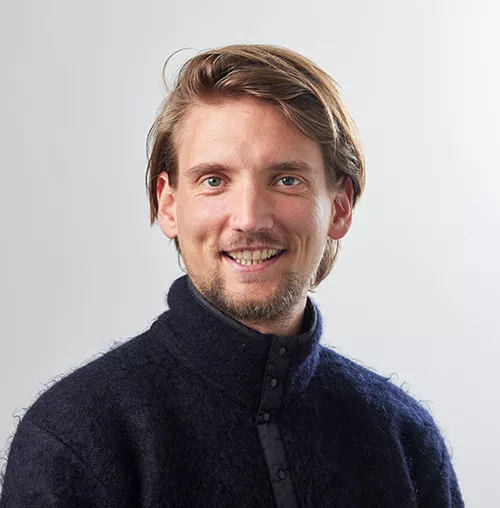
Florian Egli holds a master’s degree in international economics from the Graduate Institute in Geneva (IHEID) and a Ph.D. from ETH Zurich (Dr. Sc. ETH). He joins TUM from his previous assignment as a Senior Researcher at ETH Zurich and is excited to be part of an incoming group of professors to strengthen a growing School at the interface of social science and technology.
“As technological developments shape our societies ever more, there is no better place for such a School than TUM, one of the leading technical universities in the world,” Florian says.
His research aims to provide policy-relevant insights for governments worldwide on how to best navigate sustainability transitions.
“These transitions require massive amounts of capital to transform the economy. My group will place a special emphasis on designing an effective policy framework for increased investment in sustainable businesses, infrastructures, and projects,” Egli explains. “Furthermore, Europe is in the midst of a new era of green industrial policymaking, and my group will provide rigorous advice on the design and the evaluation of these policies to guide the policy agenda.”
Egli is thrilled to become part of an outstanding group of academics at the TUM School of Social Sciences and Technology to build a cutting-edge and policy-relevant research cluster in Munich. Having co-founded a foreign policy think tank and an initiative for collaborative and effective policymaking across political parties in Switzerland, he comments: “Fundamentally, I believe that any social science research needs to reach out to society, policymakers, and business. The TUM Think Tank is ideally positioned to become the locus of such work for Germany, Europe, and beyond.”
Doris Holzberger
Psychology of Teaching and Learning (Associate Professor)
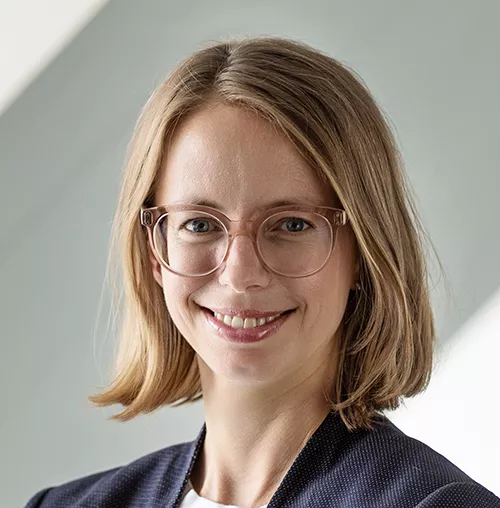
“Educate to innovate" is the core message of Doris Holzberger's work, which explores the intersection of psychology and educational research. "Only by understanding the dynamics within students as they learn and interact with each other can we create the most effective learning environments within an ever-changing and increasingly digital world,” Doris explains. “We must therefore identify ways how technology can offer efficient ways to address the individuality of every learner.”
Holzberger, who has always been committed to making her research findings accessible to educational practitioners, values the innovative and technology-oriented spirit at TUM, making it the ideal place for conducting forward-looking research with societal impact.
Having served as a professor in the field of Learning and Instruction at TUM for the past 5 years, Holzberger is passionate about exploring how collaborative learning settings as well as technology-based learning environments can serve to maximize the learning outcomes of every student and the group as a whole. She investigates teacher characteristics as well as interactions among teachers and learners to ensure good teaching quality. Her long-term goal is to develop successful feedback strategies that can be applied to various collaborative settings in higher education and beyond.
With motivation as one central component of her research focus, she also incorporates it into her daily work and is known for being an excellent motivator within her team. “I look forward to collaborating with inspiring individuals in a motivating interdisciplinary environment, collectively making a significant impact on shaping the future of education,” she states. "Together, we can set the stage for innovative education using digitization to unlock the potential of all students no matter what characteristics they bring."
Sabina Leonelli
Philosophy and History of Science (Full Professor)
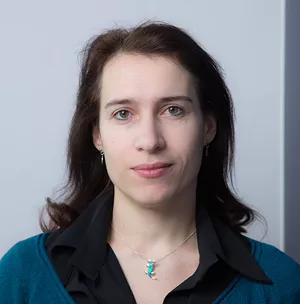
Sabina Leonelli will join the School in September 2024 from the University of Exeter, where she currently serves as Director of the Exeter Centre for the Study of the Life Sciences (Egenis) and leads "Data Governance, Ethics and Openness" for the Institute of Data Science and Artificial Intelligence. An expert in the governance and use of data, and particularly data modeling and integration across the biological, environmental, and health sciences, Leonelli is particularly interested in how recent transformations in the global research landscape – including Open Science and digitalization – affect processes of discovery and innovation.
“Not all effects are positive,” Sabina says. “In fact, we observe a concerning rise in inequity, discrimination, and exploitation linked to problematic uses of technology and communication platforms. My research group aims to understand the conceptual, social, and historical roots of such issues, thereby helping to address them for the good of humanity and of the planet.”
Leonelli, who holds a Ph.D. from the Vrije Universiteit Amsterdam, a Masters from the London School of Economics and Political Science and BSc Hons from University College London, already had links with German academia via fellowships at the Max Planck Institute for the History of Science and the Wissenschaftskolleg zu Berlin, and is looking forward to the cross-disciplinary collaborations made possible by the dynamic TUM environment and its commitment to responsible innovation.
“My research builds on a large network of partners, including disciplines spanning from the humanities to engineering, but also civil society organizations, industry, and policy. At TUM, I hope to grow these connections further, for instance through the launch of a Public Science Lab to experiment with novel forms of social engagement with research, and with the Ethical Data Initiative, a platform to support global efforts in data ethics and governance.”
Allister Loder
Mobility Policy (Tenure Track Assistant Professor)
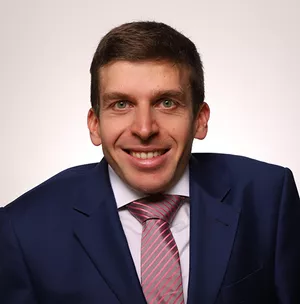
Alllister Loder, who holds a Ph.D. in transportation sciences from ETH Zurich, Switzerland, joined the TUM School of Social Sciences and Technology in October 2023 as an assistant professor of mobility policy. An engineer by training, he moved over time toward the social sciences. “A successful implementation of any transportation measure depends on humans and society. The best engineering solution might not be the optimal solution for society,” he notes.
Allister is interested in analyzing mobility innovations, interventions, and policies using empirical data and assessing their impact on individual mobility and society. One example is Germany’s recent fare innovation, the “Deutschlandticket,” where he organized a year-long panel study to measure the impacts in the Munich metropolitan area.
“The grand challenge of the mobility sector is not only decarbonization, but also providing affordable high accessibility levels, including reliability and comfort, for travelers and companies,” he observes.
Most recently, Loder’s proposal for establishing an Emmy Noether Research Group was accepted by the German Research Foundation, DFG. The group will work on the project “READAPT – resilient, adaptive, and emission-minimal transportation systems” where methods to find solutions for the mobility sector’s grand challenges next to decarbonization will be developed.
“I am most excited about working in an environment here at TUM where technology and society are thought together. Clearly, there is no better place to work and educate students on the mobility transition than in Munich,” he concludes.
Jörg Niewöhner
Anthropology of Science and Technology (Full Professor)

Jörg Niewöhner holds a Ph.D. in environmental sciences from the University of East Anglia (UK) and before joining TUM had taught for many years at Humboldt-Universität zu Berlin, Germany, as an anthropologist of human-environment relations. He co-founded and directed for many years the Integrative Research Institute for the Transformation of Human-Environment Systems:
“Understanding how people can live together under conditions of rapid planetary change is the key challenge of the early 21st century. Everything is at stake: our democratic constitution, our capabilities for solidarity and care, and our health and the health of companion species and ecologies,” Niewöhner explains.
His ethnographic research investigates the crucial role science and technology can play in shaping capacities to aspire to shared futures within planetary boundaries. Yet the Anthropocene demands a fundamentally different approach to knowledge production and innovation: public, careful, and collective.
“We need to make TUM the hotspot for a new public science in and for the Anthropocene,” Niewöhner states. “If we want to have any chance of avoiding severe suffering globally, we need to put humble innovation and technology to work for the common good in a complex world.”
Boris Paal
Law and Regulation of Digital Transformation (Full Professor)
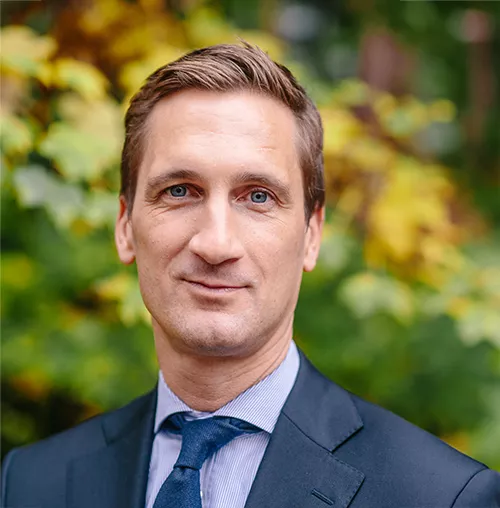
Boris Paal’s research and teaching focus on the societal implications and regulatory regimes of digital economies, on data governance, as well as on legal regimes for emerging technologies, such as artificial intelligence and quantum technology.
“As digital technologies continue to transform various aspects of everyday life, the need for human-centered regulation and governance becomes increasingly important to ensure that these changes benefit society as a whole.”
Paal, a fully qualified lawyer, joins TUM with more than 25 years of experience in academia. After his first appointment as a Full Professor in 2009, he established institutes for Data, Information, and Media Law at both the University of Freiburg and the University of Leipzig. He also served as Dean in Freiburg and founded award-winning study programs, including. Legal Clinics and Legal Tech. Paal was also active on the bench: He served as a judge at Hamburg Regional Court and has provided legal expertise in various settings, inter alia as an expert to the German Bundestag.
“I am very much looking forward to interdisciplinary collaboration and exciting joint projects at TUM – some of which have already begun,” Boris says.
Paal has published leading works on Information, Media and Data (Protection) Law and is a regular visiting researcher and lecturer at universities worldwide. Just recently, Paal spent several weeks lecturing and researching on the US East Coast to exchange ideas with colleagues at Columbia, Fordham, NYU, and Yale.
„It is absolutely a huge privilege to contribute to the outstanding environment at TUM, to foster TUM-wide collaboration, and to strengthen its already profound international ties.”
Orestis Papakyriakopoulos
Societal Computing (Tenure Track Assistant Professor)
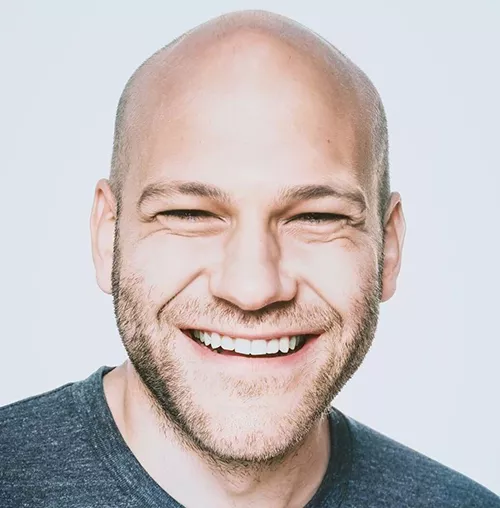
Orestis, holding an M.A and a Ph.D. from TU Munich, rejoins his alma mater as a Professor of Societal Computing.
"I am incredibly excited to serve the community that shaped me," he says. “The faculty consists of experts across the sociotechnical spectrum, and I cannot wait to collaborate with them, creating innovative knowledge that can help society.”
Having experience as an AI Research Scientist at Sony, and with prior research affiliations at Princeton and MIT, Orestis aims to develop technological tools to empower communities and foster a more inclusive society. By leading the civic machines lab within the TUM Think Tank, he wants to bring the academic world closer to citizens and policy-makers.
“Building media monitoring tools that support journalists, or developing frameworks that protect artists during the current Generative AI revolution, are just some ways that we can use our expertise in socially constructive ways”
Equally important, Orestis values the creative education of university’s students. “We need to be supportive of the students’ visions and dreams. Our role is to give them the tools necessary to succeed in their professional lives and their social activities, pursuant to their goals. We need to use innovative and enjoyable teaching methods to do so.”
Anne Rademacher
Sustainable Urban Environments (Full Professor)
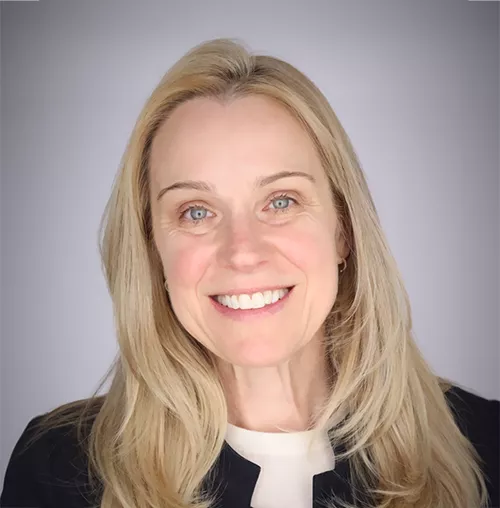
Anne Rademacher, who holds a joint Ph.D. in Anthropology and Environmental Studies from Yale University, joins TUM from New York University. Her research has focused on environmental change in cities, particularly the cities of the Global South. Anne has spent over two decades exploring the intersection of social and ecological change through case studies that range from river restoration and housing rights in Kathmandu to environmental architecture in Mumbai.
“I started my studies with a drive to understand how nature works, so I focused on environmental science,” Anne explains. “Once I started putting my science training into practice, though, I quickly learned how ‘social’ environmental change really is. The social sciences – for me, anthropology in particular – give me tools for grounding my understanding of environmental change in the complex social issues that drive it. These can be historical, political, and cultural in powerful and sometimes defining ways.”
Rademacher’s work can be described as political ecology, urban ecology, and environmental anthropology. “Regardless of the research community I’m speaking to,” she says, "my goal is to bring our understanding of environmental transformation into direct and constant conversation with social and cultural experiences and logics of change.”
“I’m thrilled to join the dynamic faculty in the Department of Science, Technology, and Society and to work with students to understand the social dynamics of science-in-action,” Anne says.
She brings to TUM a current research program that is focused on urban biodiversity under the conditions of climate change. Anne’s active projects examine topics that range from vulture extinction in India, to changing waterscapes in coastal North America, and so-called ‘re-wilding’ experiments like Munich’s own River Isar.